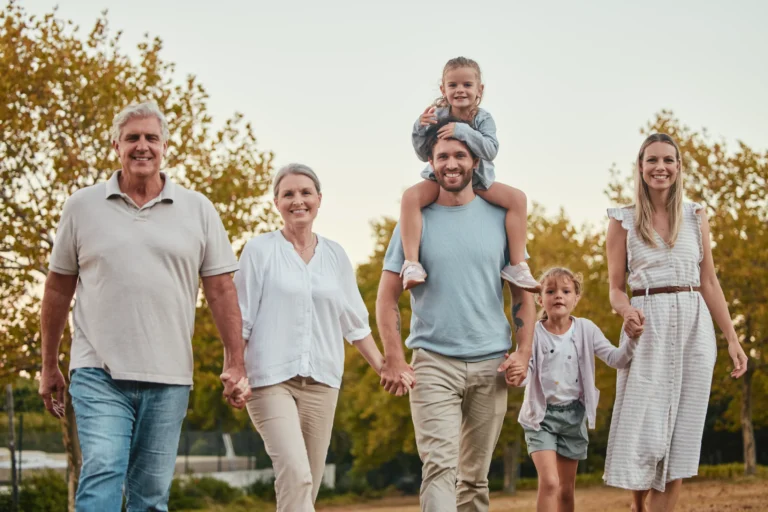Interventions to Help Families Break the Cycle of Addiction
Our interventionists are experts in helping families get their loved one suffering from alcohol or substance use disorder to treatment.

When families and individuals are battling addiction, the ripple effect of the disease causes everyone to suffer. The addict is afflicted, but the family members are all affected. Family members feel a combination of frustration, hopelessness, helplessness, anxiety, and fear. Trying to get your loved one to see a need to change their behavior is exhausting, and chances are you’ve tried everything in your power to do so.
Families find themselves in a constant state of pain and worry, afraid their loved one will end up in jail, hurting themselves or someone else, and worse, that they will die. Anger about their choices is inevitable; there’s often guilt for feeling angry and resentful towards them. The emotional pain is an endless roller coaster.
You may not even recognize your loved one as the person they once were. Their addiction can completely take over, causing them to behave in ways they once weren’t capable of. They may be distant or vacant, in the same room, but not present. When addiction has brought you and your loved one to this point, a professional family intervention can help your family get their lives back.
It’s never too early for an intervention, but it could be too late. Untreated addiction has only three endings – jail, institutions, or death. By intervening, your loved one has a chance of recovery.
Addiction is a progressive disease that, in time, will take away all aspects of their life. Chances are you’ve already seen this happening. It affects their physical and mental well-being, relationships, jobs, finances, hopes, dreams, and futures. Without being intervened on, the destruction will continue, and your loved one will require more and more of their substance of choice to feel the same effects. With a professional interventionist, getting your loved one into treatment can stop addiction on its path of destruction and bring your loved one and their potential back.
How much has your loved one already lost due to addiction?
- Have they lost their spirit?
- Have they damaged strong relationships with good people?
- Have they missed out on major milestones with their loved ones?
- Have they lost their light, spark, values, and dreams?
Believe us when we say it doesn’t have to end like this; there is a way out. By having a professional intervention, your loved one comes to understand they don’t have to keep living as they have been. We open their eyes to hope and healing, a pathway to a new way of life.
When is it time for a Professional Family Intervention?

Whether you’re a spouse, parent, child, or friend of someone with an addiction, you may feel…
- Guilty for setting up an intervention.
- Nervous about how they’ll react.
- Scared of the unknown and what lies ahead.
- Anxious about what they’ll do or say.
- Doubtful about whether professional interventions work.
- Hopeful that an intervention will finally help them heal.
As overwhelming as it may feel, having an intervention can save your loved one’s life. Addiction will not resolve on its own.
We won’t give up on your loved one.
During an addiction intervention, we don’t just show up and leave if we’re met with resistance; we expect it. We stay until the job is done, and we’ve overcome every obstacle in the way of your loved one getting the help they need.
We’re there until
- They see its value.
- They know it’s time.
- They are willing to surrender.
- They open themselves up for healing.
It may not seem like it, but your loved one is silently begging to be led to a solution. Unfortunately, they won’t often listen to family members to find one. Too much history, anger, and resentment keeps them from trusting or paying attention to what the family has to say. A neutral professional without the history or emotional charge can make the difference to them surrendering to do something different. They don’t want to be in the pain and struggle of addiction.
Common Barriers that Hold Families Back from Intervening
What’s waiting for you on the other side of a professional intervention for addiction?
Can you imagine your loved one…
- Having the motivation to grow and be better.
- Gaining the inner tools to guide them through life’s ups and downs in a healthy way .
- Processing any past traumas that are still haunting them today.
- Getting help for any co-occurring mental health concerns they may have, like depression or anxiety.
- Being themselves again.
- Laughing with you.
- Being honest with you.
- Repairing their relationships with you and the rest of your family.
- Focusing on their dreams and goals again.
This is all possible, but getting them into treatment is the first step. An addiction interventionist will open your loved one’s eyes to get them there and give your loved one hope and encouragement every step of the way. By the end of the intervention, your loved one will experience a sense of relief knowing they don’t have to fight the addiction any longer and have the chance at another way to live.





Worried that professional interventions for addiction won’t work? Maybe you’re thinking…
- Professional interventions may work on other people, but they won’t help my loved one.
- There’s no way my loved one will agree to go to treatment.
- My loved one has been to treatment before and it didn’t work.
Studies have shown that professional interventions have significantly higher odds of success in getting substance users to treatment than any other method.
And if your loved one has tried treatment before and it didn’t work, we’re here to offer a new and different path. Treatment programs are not one-size-fits-all. Vetting the right program for each individual’s needs is a part of the intervention process. It’s imperative to find the right fit, and with our connections to treatment facilities nationwide, we can help you do that.
Get your loved one back with our addiction interventionist in six easy steps:
- Book a discovery call.
- On the phone call, we’ll assess how to help your loved one best.
- We’ll have a pre-intervention communication with your family and friends to coordinate and stage the intervention. Everyone attending the intervention will write an emotional impact letter to be read at the intervention. We will edit and approve these.
- The day before the intervention will have a pre-intervention meeting with everyone attending to rehearse the events for intervention day.
- Intervention day takes place.
- Upon the end of a successful intervention, your loved one will be transported to treatment, and we will be beside them every step of the way.

Finding your solution with professional interventions
You may be wondering…what exactly are interventions for addiction? You may have seen interventions in TV shows and movies, but what are professional interventions really like?
During an addiction intervention, family, friends, and loved ones come together to honestly confront someone in their life who is struggling with a drug, alcohol, or process addiction.
Some people try to run an intervention on their own, but it can be difficult when emotions and resistance get in the way. Getting help from a professional interventionist allows the family to communicate and convey how they are feeling in a healthy way. An addiction interventionist acts as a mediator between your loved one who is struggling with a substance use disorder and everyone who loves them. We aim to help your loved one admit they have a problem, offer them hope that there is a way out, and get them to go to treatment.
On the day of the intervention, your loved one will arrive to an agreed-upon location. After arriving, they will be met with the intervention team, consisting of the interventionist, loved ones, friends, and anyone else deemed appropriate for the intervention. Each person will individually share the letter they’ve prepared with their feelings and concerns about the loved one, while emphasizing the care and concern they have for them.
Through careful and thoughtful planning with the team, if your loved one should say no to treatment, each person will also share the consequences they plan to uphold. This creates a sense of leverage and provides an added incentive for your loved one to go to treatment.
If you’re wondering how to intervene successfully, it’s important your loved one does not feel attacked or ambushed, and are met with love and understanding. We want to be honest and clear about the effects their addiction has had on their life and on yours, but we don’t want to make them feel judged or shamed.
We want to show empathy. We want to offer them hope that they can change and that change is possible for them. Your loved one might display a lot of resistance or anger, and it’s important to be prepared for any reaction they may have. We will go over how to have honest, gentle responses for any reason that your loved one may come up with to deny the extent of their addiction or any excuse they may have for why they cannot go to treatment. Additionally, we don’t want to offer your loved one time to consider going to treatment, since they can use this to exit the situation entirely.
Always keep in mind that a professional intervention isn’t a time for blaming, accusing, or name-calling. It’s a time to offer hope, respect, heartfelt concern, love and getting your loved one the help they deserve
We focus on your loved one, not their use. When it comes to professional interventions for addiction, many interventionists make the mistake of focusing on the loved one’s substance use. This can prompt the loved one to feel like they’re being attacked or are a failure. This only brings shame and guilt and causes their defenses to go up.
Our family interventionists focus on the underlying issues that cause them to use their substance of choice. Helping them to understand that it’s not the substance itself but rather the unwanted thoughts, feelings, and situations they’re trying to escape from. By addressing these issues and the emotional pain they are in, your loved one can heal. The path of recovery leads to new coping skills rather than the maladaptive ones they’ve found in a substance.
Our family interventionists prioritize making your loved one feel safe and accepted. We condemn any shaming, blaming, ganging up on, or guilt-tripping of your loved one. We focus on ensuring they feel loved, supported, and understood by everyone in the room, helping them drop their defenses and open up to seeking treatment.
We approach addiction as a family disease with your loved one at the center, creating ripple effects throughout your entire family. It affects each family member in different ways, some may shut down, while others constantly try to cover for your loved one. Maybe some of your family members continue caring for your loved one while others want nothing to do with them.
Not only does addiction affect each family member’s relationship with them, but it also affects their relationship with themselves and with others. When you love someone with an addiction, you may find yourself lying or keeping secrets to protect your loved one. You may find your mental and emotional health deteriorating as you put all of your energy into trying to “fix” your loved one. The list goes on, as addiction can bend, manipulate, and alter relationships in countless ways.
Conversely, your family’s behaviors and responses to your loved one can contribute to your loved one’s ongoing use, even though it’s unintentional. Each family member must work on their healing to best support your loved one. This is why we provide initial coaching and support to the family when we hold an intervention. Interventions aren’t just a one-day event for us – they’re a process where your loved one and your family receive the support and guidance they need for the well-being of all.
You’ve done so much for your loved one. Now it’s our turn.
Family members try their best to take care of everyone else while throwing their own well-being on the back burner and become emotionally and mentally depleted. Let us help your family find hope through an intervention. Remeber, your loved one is struggling to find a way out and is silently begging for a solution, they just have no idea what it looks like or how to start. An intervention can be the disruption that leads them out of the depths of their addiction and on the road to recovery.
A family interventionist approaches your loved one with compassion, and acceptance. When everyone comes together in this way, your loved one feels that they are unconditionally loved and not judged, they come to understand that the damage they have caused can start to heal.
Unfortunately, a lot of professional interventionists miss the mark by focusing on the addiction rather than the person and focusing on the substance use instead of the entire family system. That’s why we take a different approach by focusing on supporting the entire family, before and well after the intervention takes place.
By providing coaching and guidance for the family, we help you experience the healing you all deserve. We’ll be there for you post-intervention whenever you need us.
It’s time to get your life back.
It’s time to release the weight you’ve been carrying. You can get your life back and on the road to recovery. The family you envision – the one you dream of – is not a faraway fantasy. Healing is possible for all of you, and we’re here to hold your hand every step of the way.
We use a comprehensive, 360° approach to tackle addiction, not just focusing on your loved one but the entire family system and not just on their substance use but the underlying causes of the use. That’s merely a maladaptive coping skill they’ve picked up to manage their pain.
It’s our goal to get them to the root of their pain that’s contributing to their use. We find solutions for any mental health struggles they may be facing, rather than just focusing on treatment for addiction alone.
Additionally, we utilize the Johnson Method of interventions. We’ve found this to be the most effective method for getting individuals into treatment when you feel out of time and nothing else has seemed to work. Other methods can take months, and when you’re in a life or death situation, the Johnson Method can get the job done in a day.
Start healing your entire family system.
Most importantly, we focus on healing the entire family system. We know it’s tough to acknowledge, but it’s not just your loved one who picked up maladaptive coping skills. Everyone has their part in the situation, and it will take everyone’s effort to fix it. Family involvement is essential, which is why working with the entire family is the cornerstone of our approach.
By focusing on the root causes and healing for all family members, we can help you out of the depths of addiction and begin the journey of recovery.
Our Unique Approach to Professional Interventions for Addiction

Meet our team interventionist
Dana Golden
Our team interventionist, Dana Golden, is a Nationally Certified Family Addiction Coach, Nationally Certified Recovery Coach, writer for Psychology Today, and co-author of “Addiction Rescue: The NO-BS Guide to Recovery.” For decades, Dana experienced her closest loved ones struggling with addiction and has since dedicated her life to helping individuals and families battling this disease. Dana has been right where you are – she knows your pain. She knows the unique challenges you’re facing, the conflicting emotions you’re constantly battling, and the toll your loved one’s addiction is taking on you and your family.
Dana’s empathy, care, and commitment come through in every single intervention she holds, as she has a truly unique perspective on all sides of the problem. Dana can help you get your loved one into treatment while helping you experience the healing you deserve.
Our unique team approach allows us to tackle all sides of addiction with the knowledge of how to best support and guide each of you.

